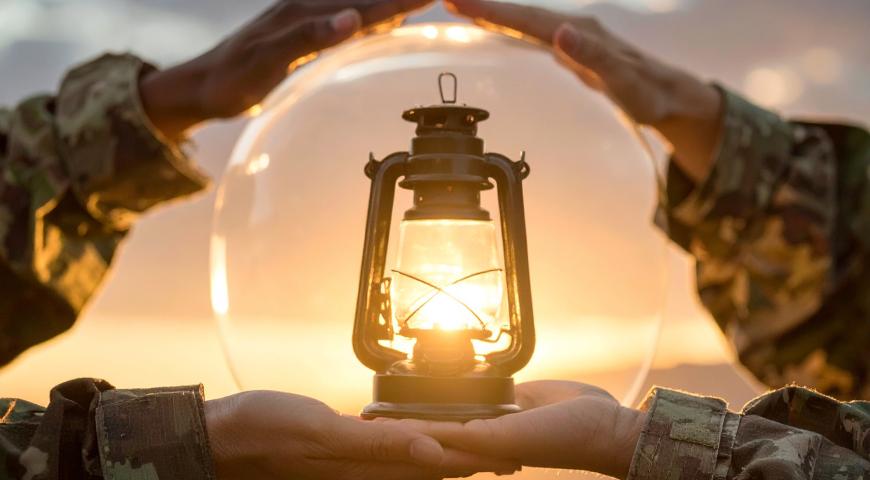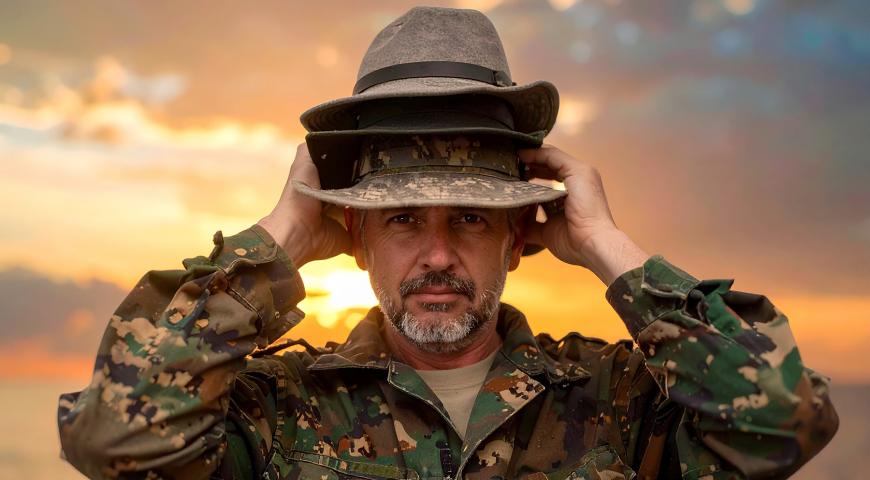Writing to convince – why I write
David Beaumont
Most military writers will, at some point, write about the act of writing. To some this can look like self-adoration by a community of people who discuss a range of topics in a closed ‘bubble’. You are unlikely to get a writer complaining that their efforts at writing have been pointless, naturally. The real reason people write about writing is that it is an act of self-reflection. Writing is a mostly personal activity, and it is often useful to critically reflect upon why writing became personally important. Furthermore, for those writers who hope to support others, this act of self-reflection can reinforce the point that writing is not unusual, nor does it require a special talent. In fact, all that really makes a writer is the confidence to get over the initial hurdle and the discipline to practice, practice, practice.
This series is primarily pitched at Officers venturing forth from Staff Course, and others who progress to appointments of considerable strategic influence. I started writing on professional topics at this very point; after graduating from Staff Course I was conveniently posted into the then Modernisation and Strategic Planning – Army Division where I was given a glimpse of the importance of being able to write well. Arguments for Army’s ‘Plan Beersheba’ were being developed, a variety of futures-oriented work leveraged off the written work of intelligent Army staff to influence strategic policy, and Strategic Plans – Army under the then Brigadier Mick Ryan maintained professional conversations through journals, papers and the “FLW2G” email-based ‘blog’. As someone who had chosen to matriculate from ACSC into a research Masters program, this was a good environment to be in.
The Army Headquarters environment confirmed for me how fleeting things in Defence really are. Postings are short, and ideas and initiatives come and go with posting orders as the staff shuffles from one job to the next. The reality of the ever-changing staff environment was that things are learned, forgotten and re-learned. I observed real change came with the maintaining of ‘narratives’ over longer periods. These were the things that truly mattered to Army. Long-standing themes and concepts were present in writing from the staff, and from contributors to a range of Army’s publications and written fora. Writing, because of its permanence and its capacity to be widely shared, was a way of influencing change in Army, or a means of convincing others outside of the Service.
There was no better time to continue writing than in the years immediately after Staff Course. I had the benefit of ‘match fitness’ having recently written thousands of words and retaining an amount of enthusiasm. Perhaps my choice to recommence writing simply played to my strengths. Instead, I found that writing is like any other skill rather than a natural gift – it can be learned and developed but requires practice. Once you stop, it is very hard to regain momentum (and motivation). Alternatively, once you write a few articles things do become significantly easier. It has always been best for me to keep going.
After presenting my Masters paper on Army and ‘expeditionary warfare’ to the Land Warfare Studies Centre as a manuscript in 2014, I decided to instead write on a topic directly relevant to my professional background – logistics. I knew very few in the Australian Defence Force had ever written about military logistics and chose it as a topic for further university research. It was also a timely choice in that Army logisticians were debating numerous issues in implementing Plan Beersheba and supporting operational concepts. But most importantly, as I articulated in an article in late 2014, I felt logistics was an impenetrable topic to most, without a story or language to describe it in such a way that it meant something. There was little in logistics that made it either convincing or compelling. I won’t pretend that I have since resolved this problem, but I thought I would have a go of fixing something that I felt needed some attention.
If you pick a relevant topic, and write and behave respectfully, you will find that professional writing is warmly received in Defence. The professionals we work beside generally respect the value of history and its lessons and contemplate the future to prepare for or create change. Don’t be sceptical about our organisations’ desire to look for new ideas for old problems. My experience has been that the contemporary environment in Defence is a positive one for writers and those willing to publicly present a position. I found this to be the case with respect to logistics.
A few Army Land Power Forum blogs and journal articles in 2014 and 2015 saw my ideas being acceptable (very important!) and credible, and I was soon asked by others to contribute where I might not normally have been. This contribution ultimately became reputational; my writing helped me become recognised as someone who could project ideas in a constructive way. Some early successes earned me mentors, and provided me institutional support. This was an important encouragement for me to continue and helped me determine where I could best make a contribution as an individual in Army.
The site ‘Logistics In War’ came about because of a conversation with a former CO of the Army School of Logistics Operations, Luke Martin, in 2015. We recognised that, amid all the discussions about logistics in the wake of Plan Beersheba, a blog or other portal for professional discussion about logistics was becoming important. Furthermore, we observed a growing interest in logistics as Army changed its organisational structure and several issues came to the fore. There was an opportunity to inform others about the relevancy of logistics to a changing force.
The opportunity came when I was lucky enough to be selected as a Chief of Army Scholar for 2017. It was a year that coincided with a shift in national security discourse as ‘multi-domain operations’ became important, futures thinking and modernisation were ascendant in Western militaries, strategic competition gained our interest, and, courtesy of an Army review into professional military education, there was a turn towards professionalisation. Army’s senior leaders spoke with a desire to see more conversation about issues, and pushed learning and innovation. There were clear logistics connotations to the ‘zeitgeist’, so naturally I went with the wind.
It is important to be novel as a writer. However, it is equally important that you are relevant, and that when you make a contribution it is timely. Some may be critical of this approach as opportunistic. The reality is your ideas won’t be read unless content matches the context of the reader. My experience is that you must balance these factors else you will be seen as either a ‘quack’ or a ‘grand-stander’ (or even worse, an irritant). Look for mentors and others that can help you find his balance and seek their critique. Prepare for your ideas to be challenged and recognise that this is a good thing. Don’t be afraid of asking for help from senior Defence leaders; their feedback on your work is highly valuable for quite obvious reasons.
My experience with writing has been positive, though I have experienced challenges. Finding the time to write is difficult, and I recognise I have been given opportunities by Army and the ADF to contribute. Every year, about September, I question whether I should take a break from researching or writing. However, I have yet to find the problem is that there is insufficient time. I disagree with the notion that we are that time poor that preparing a paper or short article is off the cards. Capacity is usually found when the motivation – intrinsic or extrinsic – is there. Keep in mind that there is a rising tide of expectation that leaders write (or contribute in some other way professionally). For me, I’ve found that writing has been a natural complement for what I am doing as routine work. I might be test-casing for an idea or an opportunity to consider an issue deeply.
That’s enough about my experiences with writing. In the last three years we have seen the ADF’s social media presence grow exponentially, and more and more people are challenging themselves to write. The emphasis given to ‘professional military education’ has focussed involvement, though I have long believed that writing is really about stewarding the profession. I have been reminded often that people do contribute to Defence, the military profession or occupation, in different ways. I appreciate that point of view, but I also believe that there is a time where, as a leader, a public profile and positions on issues becomes critical to engendering change. It is now incredibly easy to share your thoughts and have an input, at very little personal or professional risk. In fact, the thing that I reflect on the most about my experiences in writing has been how quickly a strongly positive reputation can come from making a positive professional contribution.
I hope that my experiences here come part of the way to giving any prospective writers the confidence to start writing. Writing, whether it be a short article on a website or a longer paper, has given me a tremendous opportunity to communicate with others I would never have – from senior commanders, military personnel, and public servants, to academia and industry. It has been important for me as a way of structuring my thoughts, and with a compulsion to write for my own website, a way of forcing myself to think through problems aloud. As Captain Bec Marlow wrote, ‘[i]t is your own ideas and understanding that you are unpacking and getting it down on a page will enhance your own understanding of what it is you do.’ Most of all, it has given me an opportunity to engage others, and opportunity to convince and influence.
We are fortunate to be an organisation that enables us to have this influence. Defence has not always been this way. I sincerely hope you take the opportunity, as the rest of Defence is waiting for you. You can make a difference by writing. And once you do take your first steps as a writer, remember to keep up the momentum!
Lieutenant Colonel David Beaumont (T: @davidblogistics) is Chief Instructor at the Army School of Logistics Operations. He writes regularly at ‘Logistics In War’, a website which discusses logistics and its impact on war (www.logisticsinwar.com). In 2020 he will assume the role of Director of the Australian Army Research Centre.
Technical Mastery
Social Mastery
Please let us know if you have discovered an issue with the content on this page.
Comments
Start the conversation by sharing your thoughts! Please login to comment. If you don't yet have an account registration is quick and easy.




